Final regulations on wellness programs and rewards for group health plans were issued on May 29, 2013 by the Departments of Treasury, Labor and Health and Human Services. These regulations apply to insured and self-insured group plans, both grandfathered and non-grandfathered, for plan years beginning on or after January 1, 2014.
Groom Law released their memo on Wellness and rewards programs.
The final regulations confirmed the maximum wellness reward amounts that will be allowed.
- The maximum wellness program reward is 30 percent of the total cost of medical coverage, including both employer and employee contributions.
- The maximum wellness program total reward may be increased to 50 percent for programs related to tobacco use.
- Rewards can take many forms, such as premium discounts or surcharges, reduced cost sharing, enhanced benefits, gift cards or deposits to Health Savings Accounts or Health Reimbursement Accounts.
- The reward must be available at least once per year for all similarly situated individuals.
- If family members participate in wellness programs, the reward can be based on the total cost of coverage for all covered family members. If some family members are eligible for the reward and others are not, employers have flexibility in determining the portion of the reward attributable to each family member.
There are two types of Wellness Programs: Participatory and Health-Contingent
1. Participatory Wellness Programs
Any Participatory Wellness program reward is based only on participation, not on meeting specific health standards. Examples of these types of programs include health club discounts or rewards for completing a health assessment. There are no limits on the rewards for Participatory Wellness programs.
2. Health-Contingent Wellness Programs
Health-Contingent Wellness programs require individuals to meet a health standard or participate in a health program to receive a reward. Every individual eligible for the program must be given an opportunity to qualify for the reward once a year. The reward cannot exceed the maximum amounts noted above.
Health-Contingent programs may be Activity-Only programs or Outcome-Based programs.
i. Activity-Only Wellness Programs
- Individuals are rewarded for completing a program such as a walking, diet or exercise program.
- Individuals are not required to achieve a specific result such as losing weight to earn the reward.
- A physician may provide verification that a medical condition makes it unreasonably difficult or medically inadvisable for a person to perform the activity.
ii. Outcome-Based Wellness Programs
- Individuals are required to achieve a health outcome such as a specific blood pressure or BMI level to receive the reward.
- Individuals who do not meet the required standard must take additional steps such as working with a health coach or completing a health improvement plan to receive the reward.
- Physician verification that a medical condition makes it unreasonably difficult or medically inadvisable for a person to meet the standard is not permitted for Outcome-Based programs.
iii. Reasonable Alternative Standards
If an individual does not qualify for a Health-Contingent reward, a reasonable alternative standard or waiver must be available.
- For Activity-Only programs, a reasonable alternative for obtaining the reward must be provided if it is unreasonably difficult due to a medical condition or medically inadvisable for an individual to attempt to complete the activity.
- For Outcome-Based programs, a reasonable alternative must be provided to all individuals who do not meet the initial standard.
As an example, a reasonable alternative for an individual who failed to meet a BMI standard might be participation in a weight loss program or the requirement to reduce BMI by a small amount or percentage over a year’s time.
Any materials provided to employees that describe wellness programs must include information about the availability of reasonable alternatives and contact information to request an alternative. Reasonable alternatives do not need to be defined in advance and can be determined on an individual basis.

